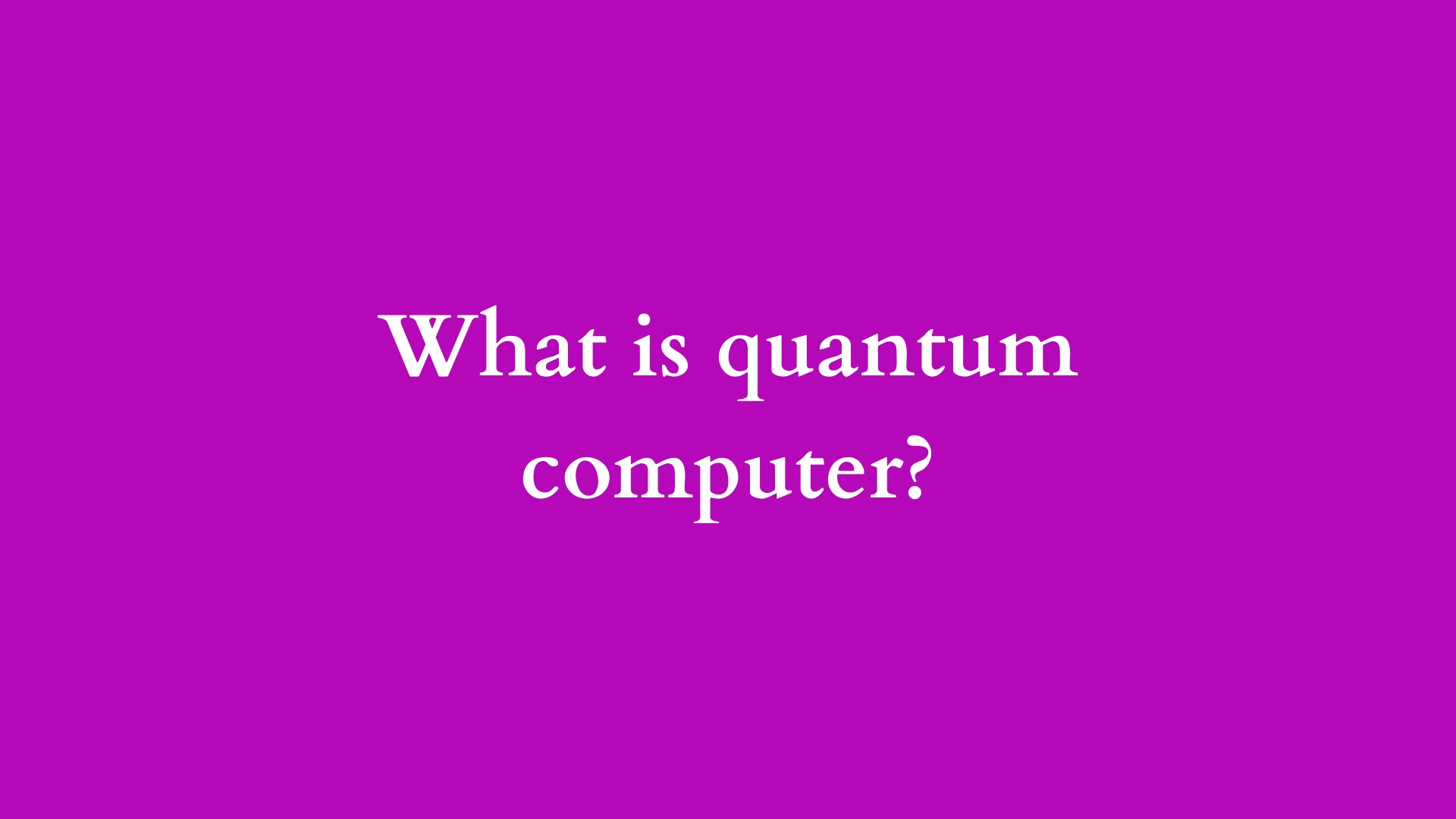Understanding Quantum Computers: A New Frontier in Computing
In the realm of computing, the advent of quantum computers marks a significant paradigm shift that promises to revolutionize how we process information. As we delve into the intricacies of what quantum computers are, how they function, and their potential applications, we embark on a journey that transforms our understanding of computing technology.

Defining Quantum Computers
At its core, a quantum computer is a type of computing device that exploits the principles of quantum mechanics—the fundamental theory in physics that describes the physical properties of nature at the scale of atoms and subatomic particles. Unlike classical computers, which use bits as the smallest unit of data (representing either a 0 or a 1), quantum computers utilize qubits (quantum bits). A qubit can exist in a state of 0, 1, or any quantum superposition of these states, allowing quantum computers to process a vast amount of information simultaneously.
The Principles of Quantum Mechanics
To appreciate how quantum computers work, we must first understand a few key principles of quantum mechanics:
- Superposition: This principle allows qubits to exist in multiple states at once. While a classical bit is either 0 or 1, a qubit can be in a state representing both 0 and 1 simultaneously. This characteristic enables quantum computers to perform many calculations at once.
- Entanglement: Qubits can be entangled, meaning the state of one qubit is directly related to the state of another, regardless of the distance separating them. This phenomenon enables quantum computers to solve complex problems more efficiently than classical computers by linking qubits in a way that their states can reflect interconnected data.
- Interference: Quantum algorithms leverage interference to amplify the probability of correct solutions while canceling out incorrect ones. By manipulating the probability amplitudes of qubit states, quantum computers can hone in on optimal solutions with greater efficiency.
How Quantum Computers Operate
Quantum computers are fundamentally different from classical computers in terms of their architecture and operation. The critical components of a quantum computer include:
- Qubits: These are the building blocks of quantum computing, maintained in a coherent state through various technologies, such as superconducting circuits, trapped ions, or topological qubits.
- Quantum Gates: Quantum gates manipulate qubits through operations akin to logic gates in classical computing. These gates change the state of qubits, allowing for the execution of complex quantum algorithms.
- Quantum Circuit: A series of operations applied to qubits, forming a computational process that ultimately leads to the desired output. Quantum circuits can take advantage of parallelism, significantly speeding up calculations.
- Measurement: The process of reading the state of qubits collapses their quantum state into traditional bits, yielding the final output. Measurement is inherently probabilistic, as it can only determine the probabilities of each qubit’s state according to quantum mechanics.
Quantum Algorithms: Unlocking New Possibilities
The development of quantum algorithms represents one of the most exciting aspects of quantum computing. These algorithms have the potential to solve certain problems exponentially faster than the best-known classical algorithms. Some prominent quantum algorithms include:
- Shor’s Algorithm: This algorithm can factor large integers inefficiently, which threatens the security of current cryptographic protocols relying on the hardness of factoring problems. Shor’s algorithm exhibits significant implications for cybersecurity and data encryption.
- Grover’s Algorithm: Grover’s algorithm provides a quadratic speedup for unstructured search problems. This means that a search through an unsorted database of N items can be completed in approximately √N operations, a substantial improvement over classical search methods.
- Quantum Simulation: Quantum computers excel at simulating quantum systems, making them invaluable for fields such as materials science, pharmacology, and complex chemical interactions. By modeling quantum phenomena accurately, researchers can explore new materials and drugs more effectively.
Current State of Quantum Computing
While quantum computing holds tremendous promise, it is essential to recognize that the technology is still in its infancy. As of now, researchers and companies across the globe, including tech giants like IBM, Google, and startups focusing exclusively on quantum computing, are pursuing advancements in several critical areas:
- Error Correction: Quantum states are fragile and susceptible to noise and errors, a phenomenon known as decoherence. Developing robust quantum error correction techniques is vital for building practical quantum computers.
- Scalability: Many current quantum systems are limited in the number of qubits they can maintain coherently at a given time. Scalability remains a challenge, as increasing qubit counts without losing their quantum properties is essential for developing more powerful quantum computers.
- Software Development: Writing effective quantum algorithms requires specialized programming languages and frameworks. Efforts are ongoing to develop user-friendly software tools for programmers and researchers to explore quantum computing.
The Future of Quantum Computing
As research and development in quantum computing continue to accelerate, the implications are vast and multifaceted. The potential applications of quantum computing span numerous industries, including:
- Finance: Quantum computing can optimize complex financial models and risk assessments, revolutionizing how business makes decisions.
- Artificial Intelligence: Enhanced algorithms and machine learning techniques could emerge from quantum computing, allowing for better data analysis and improved algorithm design.
- Pharmaceuticals: By accurately simulating molecular interactions, quantum computers can significantly shorten drug discovery timelines and enhance the efficacy of healthcare solutions.
- Logistics: Quantum computing can optimize supply chains, offering solutions for routing, scheduling, and resource allocation that are beyond the reach of classical methods.
Conclusion
The exploration of quantum computers is a thrilling frontier in modern technology, poised to unlock capabilities that were previously inconceivable. As researchers continue to make strides in this evolving field, we stand at the precipice of a new computational era that promises to transform industries, solve complex problems, and deepen our understanding of the quantum world. While challenges remain, the journey into quantum computing beckons with the tantalizing prospects of groundbreaking advancements that could redefine the future of technology. The next few decades will likely unveil innovations that reimagine our relationship with computation, and the excitement surrounding quantum computers is just beginning to unfold.
Shop Now






